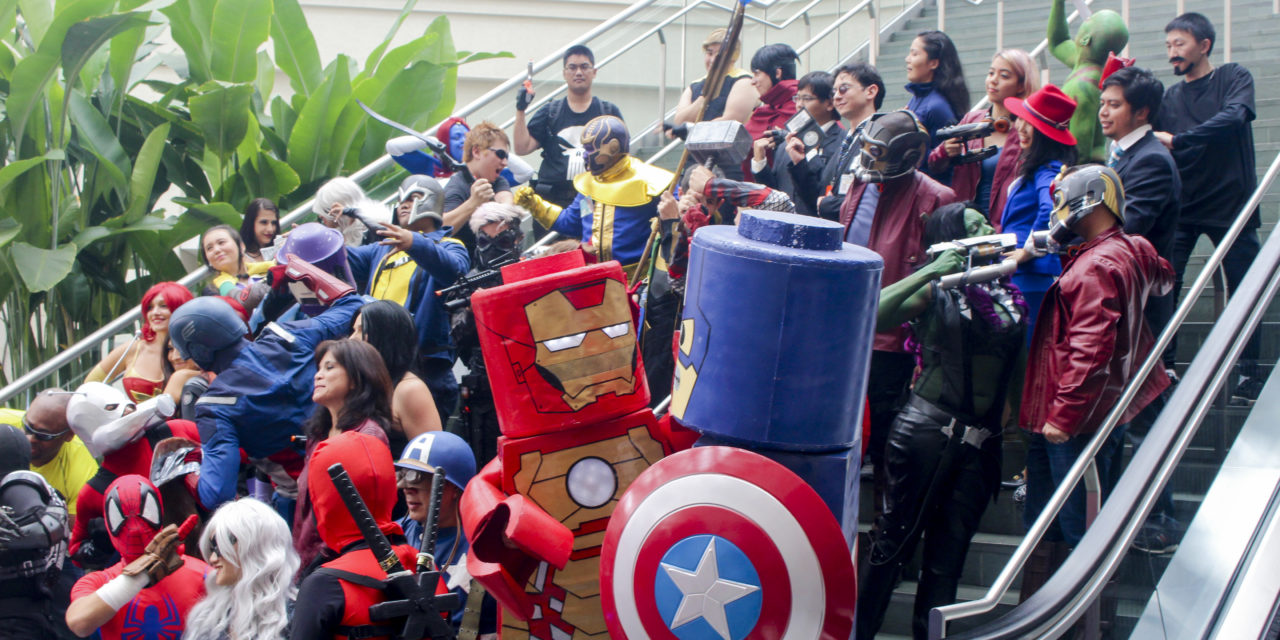By Gavin Arucan | Staff Writer
With the release of “Iron Man” in 2008, Marvel Studios changed the face of the film industry completely. Before Marvel came along, having an entire cinematic universe made up of several standalone and team-up movies was unprecedented. It’s true that there have been crossovers, such as “Alien vs Predator” and film sagas like “Harry Potter,” but nobody has quite reached the level of interconnectedness that Marvel has with its films. Because of this different take on the dying superhero genre, audiences hoarded into theaters by the time “The Avengers” came out, and Marvel movies have been breaking box office records ever since.
In fact, Marvel films have been so successful that they have inspired other studios to step up their game. Fox’s “X-Men” movie series started to branch off into solo movies with the standalone Wolverine movies and this year’s hit, “Deadpool;” Sony, after having the “Amazing Spider-Man” series fall apart, began working with Marvel to bring the beloved web slinger to the Marvel Universe; and Marvel’s biggest comic book competitor, DC, jumpstarted its own cinematic universe with “Batman v Superman: Dawn of Justice” and “Suicide Squad” just this year. Starting in 2017, Marvel itself will begin releasing three movies a year rather than two.
With three major comic book movie studios competing with each other as well as a few other superhero movies hitting the market, the number of movies based on comic books since “Iron Man” sits at around 36, with 19 movies planned from now until 2020. This means that over the period between 2008 and 2020, 55 superhero movies will be released. Comic book movies have become a worldwide phenomenon. With so many superhero movies hitting the market, that raises the question: are there too many superhero movies?
Because most of these movies exist in cinematic universes, fans feel that it’s required to see every movie in order to keep up with the story. With each studio releasing at least two movies a year, the average comic book fan will need to go the theater every couple of months to see the latest superhero flick. That’s all very well if the movies are good, but with studios trying to rush out movies as quickly as possible, a lot of those movies follow tired, cliche plots. How many times have we seen the “third act monster fight,” “beam in the sky,” or “fight against a faceless army” climaxes in superhero movies over the years? It gets tiring when you have to sit through several superhero films a year and most of them are exactly the same.
This isn’t exclusively a problem with superhero movies, however. One of the biggest criticisms against Hollywood today is that there’s no originality left in films. While this may be an over exaggeration, it’s not that far off. So many blockbusters based on novels, television shows, video games, comic books, and other movies saturate the film industry every year, pushing the few original films there are to the side.
Because of how expensive movie tickets are, many audience members only watch a select few films every year. Are those people going to watch a movie like “Swiss Army Man,” which is being praised for its originality and challenging narrative, or “Batman v Superman: Dawn of Justice,” which has two recognizable superheroes in the title? Obviously the latter.
Most of the major movie studios value money over art, as is expected. They’re a business, after all. Those movie studios will make whatever movie that will make the most money, and, according to the statistics of recent years, it’s superhero movies. Directors who are skilled enough can still make a superhero movie his or her own, but more often than not, the studio will fiddle with the project using focus groups and such until they deem the film profitable enough.
The best comic book movies over the last few years have been the ones where the director was given the freedom to do what he or she wanted to do. James Gunn delivered a fantastically entertaining vision through “Guardians of the Galaxy,” and Tim Miller was allowed to make “Deadpool” the first R-rated superhero movie in years. However, the amount of terrible superhero films vastly outnumbers the good ones. Warner Bros. and DC released two of the biggest critical bombs this year with “Batman v Superman” and “Suicide Squad.” Both those films were altered before release in order to meet what the studio thought audiences wanted. This resulted in many deleted scenes and millions of unhappy fans when the movies were released with sloppy narratives. When a studio needs to release a director’s cut of the film in order to please its fans, the movie has failed.
If superhero films didn’t have such high demand, studios might spend a little more time on making a good movie rather than cranking out them out to make a quick buck. It’s true that people love superhero movies, but is it really worth sitting through seven of them a year only to be entertained by two of them?
Unfortunately, while many people are slowly growing tired of superhero films, as long as they keep paying for movie tickets, studios will keep on making superhero films. In order to slow the trend of superhero saturation in the film industry, audiences need to speak with their wallet and refuse to watch mediocre films in the theater.
However, going back to the fact that these movies exist in popular cinematic universes, audiences will not stop watching these movies because they won’t want to fall behind on the trend. Superhero films are the most relevant genre of film right now, so by missing just one, you’re left out of the conversation. Comic book movies have us glued to the seats and we are unable to resist their lure, no matter how good or bad they are. Much like their devious nemeses plot to do, superheroes have indeed taken over the world, and until the trend dies off over time, we’re just going to have to make the best of it.
Luckily, DC seems to be listening to the critiques against them and have brought superstar comic book writer, Geoff Johns, on board to helm the DC Extended Universe; and Marvel is becoming more consistent with the quality of its films. If “Doctor Strange” proves to be better than its trailer makes it out to be, maybe the future of comic book movies might not be so monotonous.
To read all of Gavin’s stories, click here. Gavin can be reached at garucan@hawaii.edu.






